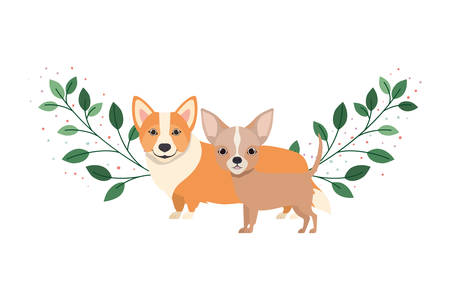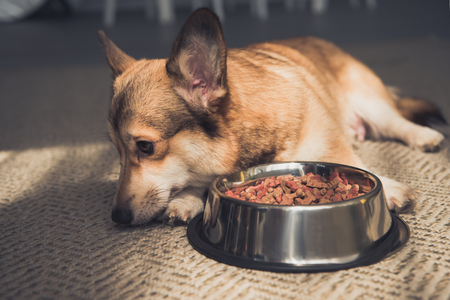Introduction to Exotic Mammals as Pets in the UK
In recent years, exotic mammals have become increasingly popular companions for pet lovers across the UK. From playful ferrets and charming sugar gliders to intelligent hedgehogs and endearing degus, these unique animals capture the hearts of many with their fascinating behaviours and striking appearances. The appeal of exotic mammals often lies in their novelty and the opportunity they provide for owners to form a special bond with a less common pet. However, keeping exotic mammals comes with significant responsibilities that differ greatly from those associated with more traditional pets like cats or dogs. UK owners must be aware of the specific needs of each species, including their dietary requirements, environmental enrichment, socialisation, and regular veterinary care. Understanding these responsibilities is crucial to ensuring the wellbeing of exotic pets and preventing common health issues before they arise. By committing to proper research and attentive care, UK pet owners can provide their exotic mammals with a happy, healthy life while also enjoying the rewarding experience of sharing their home with these extraordinary creatures.
Common Health Issues in Exotic Mammals
Exotic mammals, while fascinating and rewarding companions, present a unique set of health challenges for UK owners. Understanding these common issues is the first step towards providing better care and ensuring your pet’s wellbeing. Below is a discussion of the most prevalent health concerns seen in exotic mammals commonly kept in the UK, such as rabbits, guinea pigs, ferrets, and hedgehogs.
Dental Problems
Many exotic mammals—especially rodents and rabbits—have teeth that grow continuously throughout their lives. Dental issues can arise if their diet does not naturally wear down their teeth. Overgrown teeth can lead to pain, difficulty eating, and even abscesses. In the UK, dental disease is one of the leading reasons for veterinary visits among pet rabbits and guinea pigs.
Obesity
Obesity is another significant concern, particularly in animals kept indoors or those fed improper diets. Overfeeding treats, seeds, or high-fat foods can quickly lead to unhealthy weight gain, impacting mobility and increasing the risk of diabetes and heart disease. British owners are encouraged to monitor portion sizes and ensure their pets get adequate exercise.
Respiratory Infections
The damp climate in many parts of the UK can contribute to respiratory issues in exotic mammals. Poor ventilation, dusty bedding, and sudden temperature changes may also exacerbate these conditions. Ferrets and guinea pigs are especially prone to respiratory infections, which can become serious if not addressed promptly.
Summary of Common Health Issues by Species
| Species | Dental Problems | Obesity | Respiratory Infections |
|---|---|---|---|
| Rabbits | Very Common | Common | Occasional |
| Guinea Pigs | Very Common | Moderately Common | Common |
| Ferrets | Rare | Common | Very Common |
| Hedgehogs | Occasional | Common | Occasional |
Cultural Considerations for UK Owners
The popularity of certain exotic mammals as pets varies across the UK, but all owners share responsibility for understanding these species-specific risks. Access to specialist veterinary care can be limited in some regions, making prevention even more critical. By recognising early signs of illness and seeking advice from knowledgeable professionals, owners can greatly improve their pets’ quality of life.

3. Nutrition and Diet: Preventing Health Problems
One of the most significant factors influencing the health of exotic mammals in the UK is nutrition. Many common health issues—such as obesity, dental disease, and digestive problems—can be traced back to improper diets. By understanding each species’ unique dietary needs and using British-sourced foods, owners can make a meaningful difference in their pets’ wellbeing.
Understanding Species-Specific Diets
Unlike cats or dogs, exotic mammals such as ferrets, hedgehogs, chinchillas, and degus require specialised diets that mimic their natural food sources. For example, rabbits and guinea pigs thrive on high-fibre diets consisting mainly of hay and fresh greens, while ferrets need a meat-based diet due to their obligate carnivore status. It’s important to research your pet’s natural eating habits and consult with an exotics veterinarian for tailored advice.
Choosing British-Sourced Foods
Opt for locally grown vegetables such as kale, spring greens, and dandelion leaves for herbivores. Timothy hay produced in the UK is widely available and makes an excellent staple for rabbits and guinea pigs. For insectivorous pets like hedgehogs, live foods such as mealworms or crickets from reputable UK suppliers are preferable. Always check that any fresh produce is free from pesticides and wash thoroughly before feeding.
Avoiding Common Nutritional Mistakes
Many owners unintentionally cause harm by offering inappropriate treats or overfeeding pellets and processed foods. Avoid sugary fruits for small mammals like degus and chinchillas, as these can lead to diabetes or gut upset. Resist giving ferrets dog or cat food; instead, offer high-quality raw meats or specialist ferret kibble. Remember, variety is key—rotate leafy greens and limit starchy vegetables to prevent digestive imbalances.
Practical Feeding Tips
Establish a consistent feeding schedule and measure portions carefully to prevent obesity. Ensure constant access to clean water. Use ceramic bowls (easier to clean) or scatter food in bedding to encourage natural foraging behaviours. If you’re ever unsure about a new food item, introduce it gradually while monitoring your pet for any signs of distress.
By focusing on species-appropriate nutrition using accessible British resources, UK exotic mammal owners can greatly reduce the risk of diet-related health problems and support their animals’ long-term vitality.
4. Proper Housing and Environmental Enrichment
Creating a comfortable and stimulating environment is essential for the health and wellbeing of exotic mammals in UK homes. Inadequate housing can lead to stress, behavioural issues, and a range of preventable health problems. Here’s how you can ensure your exotic pet thrives:
Understanding Species-Specific Needs
Every exotic mammal has unique housing requirements. It’s crucial to research your pet’s natural habitat and replicate these conditions as closely as possible at home. This means considering space, substrate, shelter, and opportunities for exercise.
Key Housing Factors for UK Owners
| Mammal Type | Ideal Temperature Range (°C) | Humidity Level (%) | Enrichment Ideas |
|---|---|---|---|
| Ferrets | 15–24 | 40–60 | Tunnels, balls, scent trails |
| Rabbits | 10–20 | 40–70 | Dig boxes, hideouts, chew toys |
| Chinchillas | 10–18 (avoid overheating) | <50 (low humidity) | Shelves, dust baths, wooden toys |
| Degu & Other Rodents | 18–23 | 30–60 | Wheels, tubes, climbing frames |
| Sugar Gliders | 22–27 | 50–60 | Pouches, branches, swings |
Temperature and Humidity Control in UK Homes
The UK climate can be challenging for some exotic mammals. Use thermostats and hygrometers to monitor enclosure conditions. Avoid placing cages near draughts or direct sunlight. In winter, consider safe heat sources like ceramic heaters or heat mats with thermostatic controls.
Mental Stimulation and Enrichment Tips
- Rotate Toys Regularly: Change out toys and rearrange cage furniture weekly to keep your pet interested.
- Create Foraging Opportunities: Hide food or treats in puzzle feeders to encourage natural hunting behaviours.
- Add Climbing Structures: Branches, platforms, and hammocks offer both exercise and fun for many species.
- Provide Safe Chew Materials: Items like untreated wood help maintain dental health and relieve boredom.
- Sensory Enrichment: Introduce new scents or sounds (like nature recordings) occasionally to stimulate curiosity.
Avoid Common Mistakes
Avoid overcrowded cages, unsuitable bedding (such as pine shavings), and neglecting regular cleaning routines. Always check that enrichment items are non-toxic and free from small parts that could be swallowed.
By prioritising proper housing and mental stimulation tailored to your exotic mammal’s needs—and making small adjustments to suit the British climate—you’ll help prevent a wide range of common health issues while ensuring your pet enjoys a happy life indoors.
5. Accessing Exotic Veterinary Care in the UK
Finding proper veterinary care for exotic mammals in the UK can be more challenging than for cats or dogs, but it is absolutely crucial for maintaining your pet’s health. Not all veterinary practices have the expertise or facilities to treat exotic species, so it’s important to seek out clinics that specifically advertise experience with small mammals such as ferrets, rabbits, guinea pigs, and other less common pets. The Royal College of Veterinary Surgeons (RCVS) website offers a helpful search tool to locate vets who specialise in exotics. Additionally, organisations such as the British Small Animal Veterinary Association (BSAVA) and the British Veterinary Zoological Society (BVZS) provide directories and resources for owners.
Understanding Routine Health Checks
Regular health checks are essential for early detection of common health issues in exotic mammals. These checks typically include a physical examination, dental assessment, weight monitoring, and advice on nutrition and husbandry. Some species require more frequent visits due to their particular vulnerabilities. For example, rabbits benefit from bi-annual dental checks because dental problems are so prevalent in this species. Make sure you schedule these routine appointments even if your pet appears healthy, as many exotic animals instinctively hide signs of illness until conditions become advanced.
Vaccinations and Parasite Control
Vaccination needs will depend on your pet’s species. In the UK, rabbits should be vaccinated against myxomatosis and rabbit haemorrhagic disease (RHD1 and RHD2). Ferrets may require vaccinations against canine distemper virus if they are at risk. Speak to your exotic vet about the specific requirements for your pet. Parasite control is also vital; external parasites like mites and fleas, as well as internal worms or coccidia, can pose serious risks to exotic mammals. Your vet can recommend safe treatments and preventative measures tailored to your animal’s needs.
Emergency Preparedness
Because some exotic mammals deteriorate rapidly when ill, it’s wise to know where your nearest 24-hour exotic vet service is located before an emergency arises. Keep their contact details easily accessible and discuss an emergency plan with your regular vet during routine visits.
By proactively seeking specialised veterinary care and keeping up-to-date with recommended check-ups, vaccinations, and parasite control, UK owners can significantly reduce health risks for their exotic mammals and ensure a happier, healthier life for their unique companions.
6. Promoting Preventive Health through Daily Care
Proactive daily care is essential for safeguarding the wellbeing of exotic mammals and preventing many common health issues seen in UK homes. By incorporating practical routines and regular checks, owners can often spot early signs of illness and address concerns before they escalate.
Establishing a Routine Observation Schedule
Consistency is key when it comes to monitoring your pet’s health. Set aside time each day to observe your exotic mammal’s behaviour, appetite, movement, and general demeanour. Take note of any changes, such as reduced activity, unusual vocalisations, or alterations in eating and drinking patterns. Early detection of subtle shifts can be vital in identifying underlying health problems.
Hands-On Health Checks
Gentle handling not only strengthens your bond but also allows you to check for lumps, wounds, abnormal growths, or signs of discomfort. Examine their eyes for discharge or redness, check ears for wax build-up or odour, and inspect teeth for overgrowth—an especially important step for rabbits and rodents. Always wash your hands before and after handling to prevent the spread of bacteria.
Maintaining Clean Living Conditions
A clean environment reduces the risk of infection and respiratory issues. Replace bedding regularly with dust-free options suitable for your species. Remove uneaten fresh food daily to prevent spoilage and bacterial growth. For UK homes where central heating may dry out air in winter, consider providing humidity control if recommended for your pet’s species.
Monitoring Weight and Body Condition
Weigh your pet weekly using kitchen scales or a small animal scale. Sudden weight loss or gain can signal illness long before other symptoms appear. Record weights in a logbook to track trends over time—a practice encouraged by UK veterinary professionals.
When to Seek Veterinary Advice
If you notice persistent changes in behaviour, appearance, appetite, or droppings, contact an exotics-savvy vet without delay. Many UK practices now offer specialist services for small mammals; establishing a relationship with such a practice will ensure prompt and knowledgeable support if issues arise.
By embedding these preventive habits into your daily routine, you demonstrate responsible ownership and give your exotic mammal the best chance at a healthy, happy life in your UK home.
7. Useful Resources and Support Networks for UK Exotic Mammal Owners
Being an exotic mammal owner in the UK comes with unique challenges, but you are not alone. There are numerous organisations, online communities, and helplines dedicated to supporting you in providing the best possible care. Below is a curated list of valuable resources specifically tailored for UK exotic mammal enthusiasts.
UK-Specific Organisations
- The British Veterinary Zoological Society (BVZS): Offers guidance and up-to-date information for owners and professionals on exotic mammal health and welfare.
- The Royal Society for the Prevention of Cruelty to Animals (RSPCA): Provides advice on responsible ownership, welfare standards, and rescues for exotic mammals.
- The Rabbit Welfare Association & Fund (RWAF): While rabbit-focused, this organisation provides excellent educational materials relevant to small exotic mammal care.
- The Animal Welfare Foundation (AWF): Offers evidence-based information on best practices and legal responsibilities for exotic pet owners.
Online Communities & Forums
- Exotic Pets UK Forum: A popular online space for sharing experiences, asking questions, and accessing peer support from fellow UK exotic mammal keepers.
- Facebook Groups: Search for UK-based groups such as “UK Exotic Mammal Owners” or “British Small Pet Support” for real-time advice and networking.
Helplines & Professional Support
- PDSA Pet Care Advice Line: Provides free advice from veterinary professionals on pet health concerns, including exotics (pdsa.org.uk).
- RSPCA Helpline: For urgent animal welfare issues or advice specific to exotics: 0300 1234 999.
Finding an Exotics-Savvy Vet
A crucial part of responsible ownership is access to knowledgeable veterinary care. The BVZS website features a “Find a Vet” tool specifically for exotics. Always check that your chosen vet has experience with your particular species.
Your Local Authority and Animal Welfare Officer
If you have questions about legal requirements or need help regarding animal welfare standards in your area, contact your local council’s animal welfare officer or visit their website for additional support.
Tapping into these networks ensures you stay informed, confident, and well-supported throughout your journey as an exotic mammal owner in the UK. Remember, proactive engagement with these resources not only helps prevent common health issues but also promotes responsible and rewarding pet ownership.


